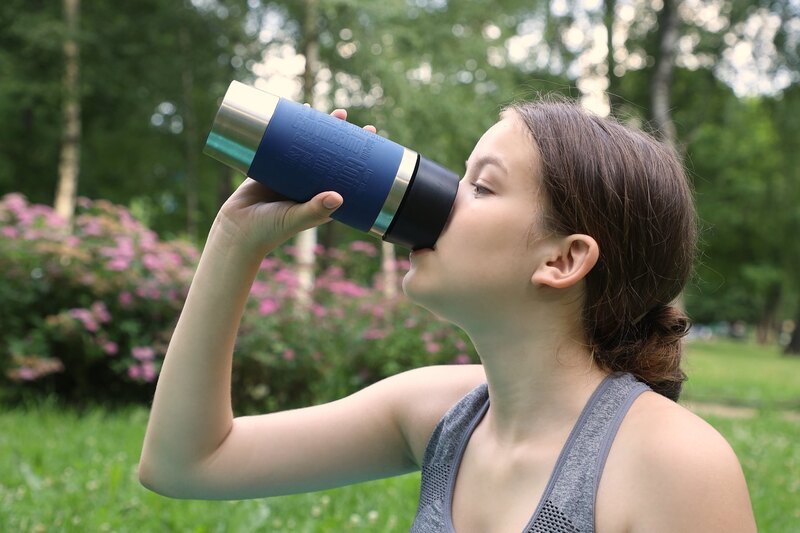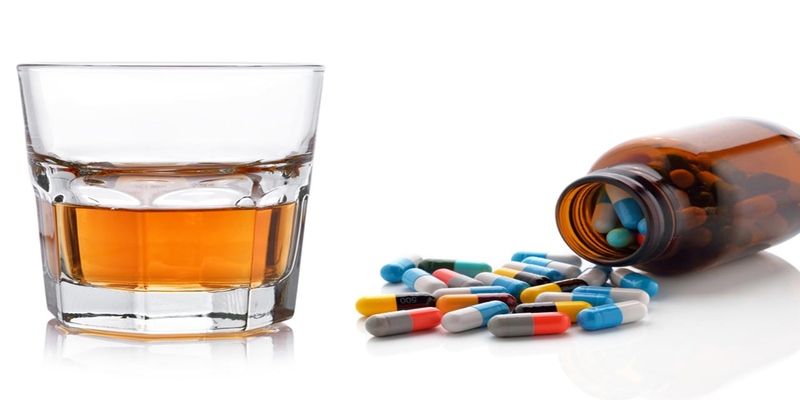Hydration is a fundamental yet frequently overlooked aspect of effective physical conditioning. It's more than just quenching your thirst; it's about fueling your body to perform at its peak and recover quickly post-workout. The choices you make on what to drink can indeed make or break your workout. This article will discuss the importance of hydration during exercise, the various drinks available for hydration, and how to make the right choice for your specific workout needs.
Why Hydration is Essential During Exercise?
Water is the elixir of life, and its role is amplified during exercise. It helps regulate body temperature, lubricates joints, and aids in nutrient transport to give you the energy you need to power through.
Consequences of Dehydration
Dehydration can lead to a significant drop in performance, causing fatigue, dizziness, and in severe cases, heat stroke. Therefore, maintaining optimal hydration levels is not just beneficial, but necessary for any physical activity.
Different Types of Drinks for Hydration
In the quest to improve our physical performance and overall health, the role of hydration cannot be overstated. Let's delve deeper into the different types of drinks that can aid in hydration and how to utilize them effectively to maintain optimal hydration levels.
1.Water
Water, often referred to as nature's refreshing beverage, is the first line of defense against dehydration. It's calorie-free, easily accessible, and helps in numerous body functions. However, for longer workouts or high-intensity exercise, water alone might not suffice due to the loss of electrolytes through sweat.
2.Sports Drinks
Sports Drinks come into play here. Designed specifically for athletes, these beverages contain a balance of electrolytes and carbohydrates. The electrolytes help replenish the ones lost through sweat, maintaining the body’s fluid balance and muscle function. The carbohydrates provide immediate energy, making them suitable for endurance activities.
3.Electrolyte-Enhanced Water
Electrolyte-Enhanced Water is another variant that fits somewhere between regular water and sports drinks. It has added minerals like calcium, potassium, and magnesium, providing a hydration boost without the extra calories and sugars found in sports drinks. It's an excellent choice for moderate exercises or for those who need to keep their calorie intake in check.
4.Coconut Water
Coconut water, often referred to as "nature's sports drink," has gained popularity recently due to its natural electrolyte content and lower sugar levels compared to sports drinks. It's a great natural alternative for hydration, especially for those who prefer avoiding artificial ingredients.
5.Protein Drinks
These are typically used post-workout to aid in muscle recovery, but they also play a role in hydration. They're often combined with carbohydrates and electrolytes, contributing to fluid balance. However, they're higher in calories and best suited for high-intensity, high-volume workouts or strength training.
6.Milk
Lastly, there’s good old Milk. Yes, milk. It has a natural balance of carbohydrates, protein, and electrolytes, plus it's high in calcium. Studies suggest that milk, especially chocolate milk, can be just as effective as traditional sports drinks for rehydration and recovery.
Choosing the Right Hydration Option
The ideal hydration option largely depends on the length, intensity, and nature of your workout. For light to moderate exercises, water is usually sufficient. If you're engaging in lengthy, high-intensity workouts or if you're exercising in hot conditions, opting for sports drinks, coconut water, or milk can be beneficial due to their electrolyte and carbohydrate content.
Protein drinks are best suited for high-volume, high-intensity workouts and strength training, as they can aid in muscle recovery. Those who prefer natural alternatives may lean towards coconut water for its minimal sugar levels and naturally occurring electrolytes.
It's important to consider your dietary needs and restrictions when choosing the right hydration option. For instance, individuals watching their calorie intake might opt for water or coconut water over calorie-dense options such as protein drinks or milk.
Listening to your body and understanding its needs is crucial in making the right choice. If you're unsure, consulting with a sports dietitian or a healthcare professional can provide guidance tailored to your individual needs and fitness goals.
When to Hydrate?
The best time to hydrate is both before and during exercise. It's best to start hydrating a few hours before strenuous activity, drinking about 2-3 cups of fluids. During exercise, it's important to drink between 4-8 ounces of fluid every 15-20 minutes.
The Role of Hydration in Athletic Performance
Hydration plays a pivotal role in athletic performance and overall health. Inadequate hydration can lead to a decrease in physical and mental performance, muscle cramps, fatigue, and even heatstroke.
Enhancing Performance
Proper hydration helps maintain the body's balance of electrolytes which, in turn, aids in the efficient functioning of muscles and nerves. When the body is well-hydrated, it can regulate its temperature more effectively, ensuring optimal performance.
Preventing Injuries
Lack of hydration can lead to muscle cramps and fatigue, increasing the risk of injuries during athletic activity. By maintaining an optimal level of hydration, athletes can promote muscle flexibility and resilience, thereby reducing the risk of strains, sprains, and other injuries.
Facilitating Recovery
Post-exercise hydration is crucial for recovery. It helps replenish the fluids lost through sweat and aids in the repair and regeneration of damaged muscle tissues. Consuming drinks with protein and carbohydrates after high-intensity workouts can enhance recovery by replenishing energy stores and facilitating muscle repair.
Conclusion
Hydration is a key element of athletic performance and health. While water is often sufficient for light to moderate exercises, sports drinks, coconut water, or milk can be beneficial for strenuous activities due to their electrolyte and carbohydrate content. By understanding the importance of hydration and the role it plays in performance, prevention of injuries, and recovery, athletes can make informed choices about their hydration strategy. It's always wise to consult with a sports dietitian or a healthcare professional for personalized advice.




